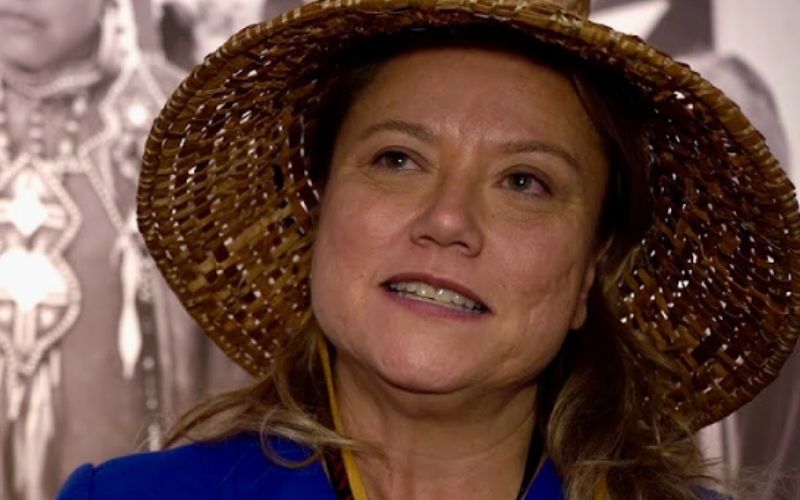
- Details
- By Native News Online Staff
The Nature Conservancy, a global nonprofit environmental organization, announced the appointment of Fawn Sharp this week to its global board of directors.
Sharp— the former president of the National Congress of the American Indian and former president and vice president of her tribe, the Quinault Indian Nation in Washington State—will join two dozen other board members.
The Board of Directors are responsible for determining TNC’s policy, according to the nonprofit’s bylaws. Members of the Board serve three year limits.
“I am thrilled to welcome Fawn to our global Board of Directors,” Nature Conservancy CEO Jennifer Morris said in a statement. “Fawn is an important voice on behalf of Indigenous Peoples and communities in the global climate change movement, and her leadership will help propel TNC forward in our efforts to achieve our 2030 Goals.”
Board Chair Senator William Frist said that this is a defining decade for the planet to learn from and center Indigenous voices.
“As an experienced tribal leader, Fawn’s voice and leadership will help guide our efforts to amplify Indigenous-led conservation and to ensure that traditional knowledge informs TNC’s policy and science driven conservation decisions,” he said.
For Sharp, this role is her second international leadership appointment in 2024. She was also appointed to serve as an inaugural member and co-chair to the World Economic Forum’s Indigenous Steering Committee for the Indigenous Knowledge and Leadership Network earlier this year, she said.
“In this next exciting chapter of my life and new international leadership roles at both TNC and the WEF, I look forward to advocating the interests of Indigenous people, globally, where I will continue to advance tribal and economic sovereignty, human rights, and climate policy and finance,” Sharp told Native News Online. “We must center equity in climate investments, domestically and globally, and in our multilateral political relationships if we have any chance of protecting all that is sacred to us - our lands, precious natural resources, relatives in the ocean, rivers, lakes, air, forests and deserts and a clean, healthy, sustainable and prosperous future for the next seven generations.”
More Stories Like This
Gwich'in Tribal Governments Submit Comments Challenging Fish and Wildlife Service's Inadequate Environmental Review of Arctic Refuge Snow RoadRappahannock Tribe Challenges 9M-Gallon Water Plan
Feds release draft long-term plans for Colorado River management
Apache Leader Walks 60 Miles to Court Hearing That Will Decide Fate of Sacred Oak Flat
Rappahannock Tribe Raises Sovereignty and Environmental Concerns Over Caroline County Water Permit
Help us defend tribal sovereignty.
At Native News Online, our mission is rooted in telling the stories that strengthen sovereignty and uplift Indigenous voices — not just at year’s end, but every single day.
Because of your generosity last year, we were able to keep our reporters on the ground in tribal communities, at national gatherings and in the halls of Congress — covering the issues that matter most to Indian Country: sovereignty, culture, education, health and economic opportunity.
That support sustained us through a tough year in 2025. Now, as we look to the year ahead, we need your help right now to ensure warrior journalism remains strong — reporting that defends tribal sovereignty, amplifies Native truth, and holds power accountable.
 The stakes couldn't be higher. Your support keeps Native voices heard, Native stories told and Native sovereignty defended.
The stakes couldn't be higher. Your support keeps Native voices heard, Native stories told and Native sovereignty defended.
Stand with Warrior Journalism today.
Levi Rickert (Potawatomi), Editor & Publisher


